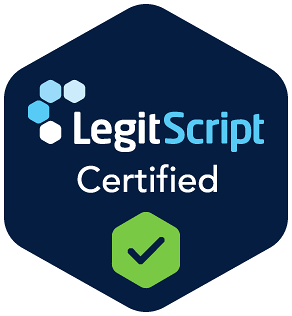.jpg)
Family Matters: How Loved Ones Can Support Long-Term Recovery
Introduction: Recovery Is a Team Effort
When someone struggles with substance abuse or mental health challenges, their whole family feels the impact. But family support isn't just helpful—it's often crucial for sustained recovery.
At Spark Wellness, we emphasize family involvement as an essential part of our addiction and mental health programs. Here’s how loved ones can effectively support recovery, creating lasting change for everyone involved.
1. Understanding the Family’s Role in Recovery
Families can play many roles: supporters, educators, motivators, and allies. But they can also unintentionally enable or complicate recovery efforts. Understanding your role means knowing how to:
- Encourage without pressure
- Support without enabling
- Maintain boundaries without guilt
- Listen without judgment
Our family support services provide training and guidance on navigating these roles effectively.
2. Establishing Healthy Boundaries
Boundaries protect both the recovering individual and their loved ones from patterns of enabling or codependency. Healthy boundaries might look like:
- Clear expectations about substance-free environments
- Defining personal responsibilities versus shared family tasks
- Allowing the recovering individual space to build independence
- Avoiding emotional manipulation or guilt as motivators
Our therapists support families in setting these boundaries through individual and group family sessions.
3. Communication Skills That Heal
Miscommunication often fuels conflict and relapse risk. Families in recovery can improve their communication by:
- Practicing active listening
- Avoiding blame-driven conversations
- Using “I” statements to express feelings
- Learning to recognize emotional triggers and address them constructively
We integrate these communication strategies into our outpatient recovery programs, helping families rebuild trust.
4. Educating Families About Addiction and Mental Health
Understanding addiction and mental health struggles reduces stigma and increases empathy. Education for families should include:
- Recognizing signs of relapse or mental health decline
- Knowing what resources and support networks exist
- Understanding the neurobiology of addiction
- Appreciating recovery as a long-term process
At Spark Wellness, we provide ongoing educational resources and support through our comprehensive mental health services.
5. Self-Care for Family Members
Supporting someone in recovery can be emotionally exhausting. Self-care isn’t optional—it’s necessary. Family members need to prioritize their well-being by:
- Engaging in personal therapy or support groups
- Setting aside time for relaxation and personal hobbies
- Recognizing when they need emotional space or rest
- Seeking professional guidance to manage emotional burdens
Our family therapy sessions focus extensively on helping family members care for themselves while supporting their loved ones.
Final Thoughts: Recovery Is Stronger Together
When families actively participate in recovery, everyone benefits—not just the person in treatment. Together, families can become stronger, healthier, and more resilient.
If you're a family member looking for guidance on supporting someone in recovery, contact Spark Wellness today. We'll help your family build a foundation of support that lasts a lifetime.
Recovery articles for you

Anxiety vs Depression: How to Tell the Difference and Why It Matters for Treatment

When Weekly Therapy Isn’t Enough: Signs You May Need a Higher Level of Mental Health Care



